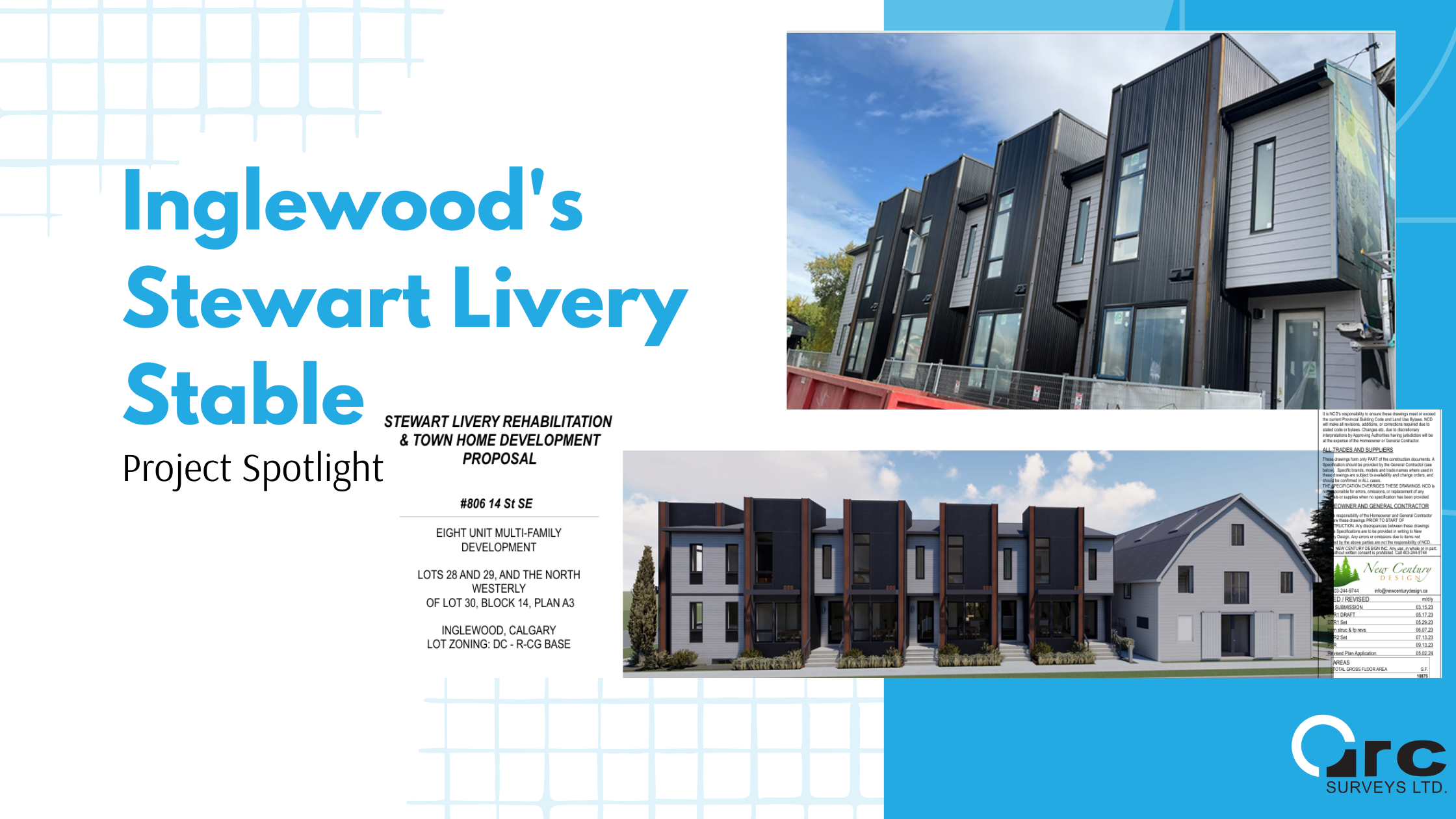Thinking of building a new garage, expanding your deck, or adding a garden suite? Before the hammer hits the nail, there’s one critical document you’ll likely need: an updated Real Property Report (RPR).
Across Calgary and surrounding municipalities, zoning bylaws and development permit requirements are strictly enforced. An RPR helps prove that your new or existing structures meet those rules—and that you’re not accidentally building too close to your property line, encroaching on a utility right-of-way, or violating setback limits.
Why Cities Require an RPR for Renovations
When you apply for a building permit or development permit, city planners need to ensure your project complies with local zoning regulations. These include:
-
Minimum setbacks from property lines
-
Height restrictions and maximum square footage
-
Lot coverage limits (how much of your property is occupied by buildings)
-
Protection of easements, utility corridors, and rights-of-way
If your structure is too close to a fence, sidewalk, or neighboring property, or worse, crosses the boundary, you could face serious consequences:
-
Stop-work orders that bring your project to a halt
-
Fines or bylaw enforcement actions
-
Delays in getting inspections or final approvals
-
Complications when selling your home down the road and potential financial holdbacks for non-compliance.
An updated RPR gives peace of mind to homeowners, city officials, and future buyers an an official, legal document that is defensible in court.
What Does an RPR Actually Show?
A current Real Property Report is more than just a survey—it’s a visual snapshot of your lot showing the location of all visible structures relative to your legal property boundaries. This includes:
-
The exact distance between your buildings and your property lines
-
Whether any part of your deck, garage, or addition encroaches into restricted zones
-
Potential conflicts with sidewalks, utility lines, or neighbouring lots
For many permit applications in Calgary, a valid RPR is required as part of the submission. In some cases, homeowners can submit overlay drawings or site sketches along with the RPR to illustrate planned changes.
Common Renovations That Require an Updated RPR
Wondering if your project needs one? These renovations almost always trigger the need for a new RPR:
-
Detached garages or sheds
-
New fences or retaining walls
-
Raised decks or multi-level structures
-
Basement walkouts or rear additions
-
Garden suites and legal secondary suites
Even smaller upgrades—like replacing a deck or modifying a garage—can prompt the city to request an updated RPR to confirm continued compliance with the Land Use Bylaw.
When Should You Update Your RPR?
You should consider updating your RPR if:
-
You’ve added any structures since the last RPR was completed
-
Your RPR is more than a few years old and doesn’t reflect current conditions
-
You’re submitting development permit or building permit applications
-
You’re planning to sell your home and want to avoid last-minute issues during the transaction
Buyers and their lawyers will want to see that your property’s improvements are fully documented and within legal boundaries, and many lenders require an RPR by an land surveying company to verify the property as security before releasing the mortgage funds for payment.
Avoid Delays and Surprises: Get Your RPR First
If you want your renovation to go smoothly, from permits to construction to eventual resale, it pays to get your RPR sorted out early. At Arc Surveys, we specialize in RPR’s by authorized Calgary land surveyors and can deliver fast, accurate RPRs that keep your project or transaction moving forward.
Need help identifying your property line before you build? We offer property line surveys or an RPR by a certified Alberta Land Surveyor so you know exactly where you stand.
Start your project with confidence. Contact Arc Surveys today to book your RPR or request a quote.





